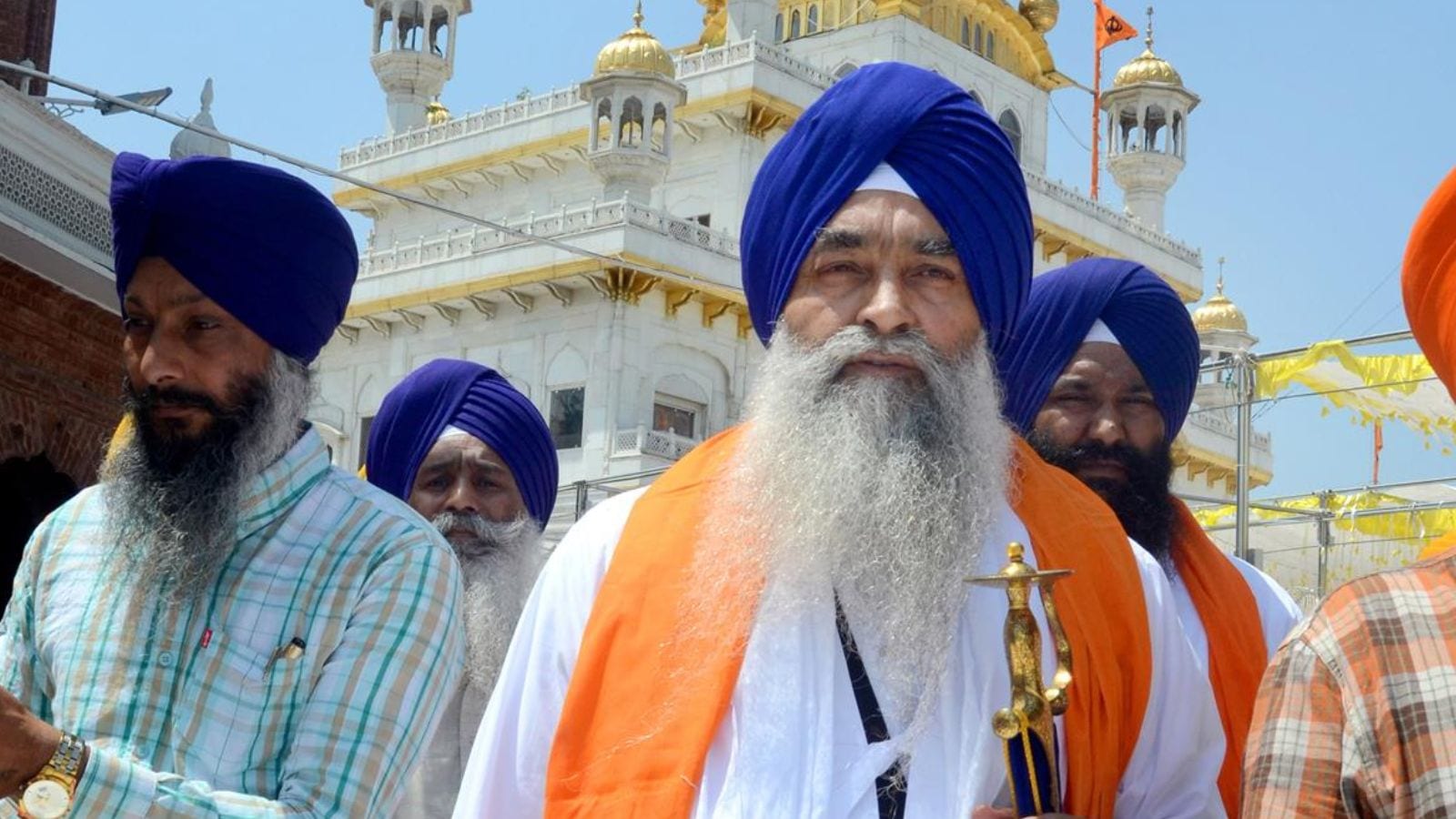 |
|
The political landscape of Punjab, India, is currently marked by a power struggle within the Shiromani Akali Dal (Badal), a prominent Sikh political party. The recent resignation of Sukhbir Singh Badal from the party presidency, while accepted, has sparked controversy and raised questions about the party's internal dynamics and its relationship with the powerful religious authority, the Akal Takht. The Akal Takht, the highest temporal seat of Sikhism, issued an edict on December 2nd, calling for a seven-member committee to oversee internal reforms within the Akali Dal. This edict was a response to perceived internal issues and a call for greater transparency and accountability within the party. The party's announcement of a new membership drive and upcoming elections for the party president, seemingly without directly addressing the Akal Takht's committee, has been met with criticism.
Giani Raghbir Singh, the Jathedar (head priest) of the Akal Takht, publicly voiced his concern over the Akali Dal's apparent circumvention of the committee. He expressed his belief that the party is employing a delaying tactic, neglecting the Akal Takht's directive for immediate reform. Singh's statement highlights the complex relationship between the religious and political spheres in the Sikh community. While the Akali Dal has historically maintained close ties with the Akal Takht, this recent conflict suggests a growing tension between the two powerful entities. Singh's insistence on the committee's continued relevance underscores the Akal Takht's determination to ensure accountability and transparency within the Akali Dal.
The Akali Dal's decision to proceed with a membership drive and election for a new president without explicitly addressing the Akal Takht's seven-member committee presents several potential interpretations. It could be viewed as a strategic move to maintain internal control and minimize outside influence. Alternatively, it might reflect a genuine disagreement over the approach to internal reforms. The party's response to the Akal Takht's concerns will be crucial in determining the future trajectory of their relationship. The outcome will not only affect the internal structure of the Akali Dal but could also have broader implications for the political landscape of Punjab and the relationship between religious and political authority within the Sikh community. The conflict serves as a reminder of the ongoing interplay between religious and political power in the region, and the potential for conflict when these two spheres intersect.
The situation is further complicated by the potential for factionalism within the Akali Dal. The resignation of Sukhbir Singh Badal, while seemingly a step towards reform, may have also opened the door for internal power struggles and competing factions vying for control. The Akal Takht's insistence on its seven-member committee could be seen as a way to ensure a more transparent and inclusive process for selecting a new leader, preventing the dominance of a particular faction. The party's next steps will be closely watched by political analysts and the Sikh community at large. Any move to undermine the Akal Takht's authority could lead to further tension and potentially impact the party’s standing within the Sikh community.
The ongoing conflict between the Akal Takht and the Shiromani Akali Dal highlights the intricate dynamics between religious and political power in Punjab. The Akal Takht's intervention underscores its role as a significant actor in the state's political landscape and its commitment to holding political parties accountable. The resolution of this conflict will have significant consequences for the future of both the Akali Dal and the relationship between religious and secular authority within the Sikh community. It will also likely influence the political climate in Punjab, impacting upcoming elections and the broader political discourse.
Source: Day after SAD(B) forms panel to oversee membership drive, Akal Takht Jathedar questions move
